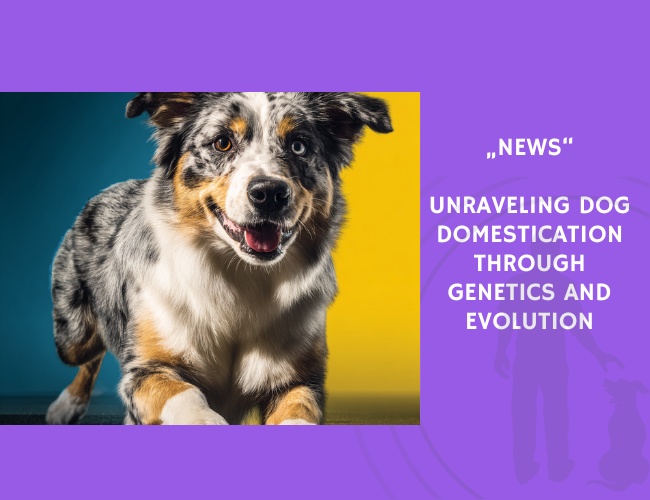Understanding the genetic origins of domestic dogs is crucial for modern breeding practices and evolutionary biology. A study by A. Khokhlov and colleagues explores the phylogenetic processes behind dog domestication and breed development, tracing their origins back over 12,000–15,000 years to the Mesolithic period. Through the integration of archaeological, morphological, biochemical, and genetic methods, the researchers established a clear evolutionary link between the wild European wolf and modern dogs.
The study confirmed that both species share 78 chromosomes, allowing them to produce fertile offspring—strong evidence of close genetic affinity. This compatibility, along with fossil records and shared anatomical traits, supports the theory that the European wolf is the direct ancestor of domestic dogs.
As early humans began to selectively breed wolves for specific traits—such as tameness, cooperation, and utility—morphological and physiological changes took place over generations. The domestication process was influenced by key genetic mechanisms like mutation, recombination, selective breeding, and the reserve of hidden hereditary traits, all of which contributed to the remarkable diversity seen in dog breeds today.
Importantly, the researchers also emphasized that both the Canidae and Felidae families underwent domestication. While dogs were the first to be domesticated, the study underscores the broader evolutionary narrative of carnivore domestication, helping scientists and breeders apply these insights to improve selective breeding methods using modern biotechnology.
Ultimately, this research deepens our understanding of how early human-animal relationships shaped the genome and behavior of dogs, laying the foundation for their modern roles as companions, workers, and guardians.
Source: A. Khokhlov, I. Honcharova, A. S. Fediaieva, and O. Shevchenko. 2023-09-01. “Phylogenetic processes in dog domestication and breeding.” Faktori eksperimental’noi evolucii organizmiv.










